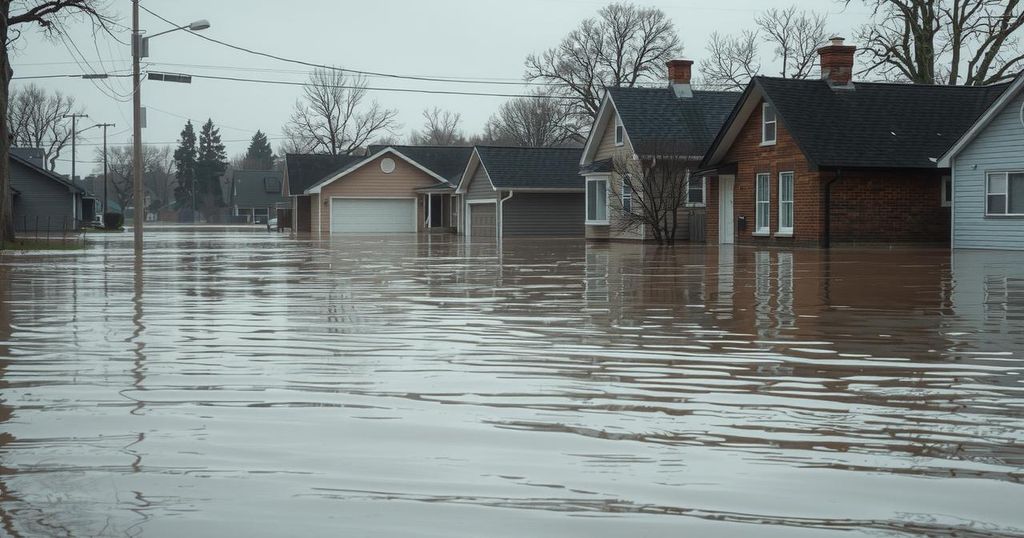Floods in Northern Nigeria Claim at Least 111 Lives Amid Climatic Challenges

Flooding in Mokwa, Nigeria has resulted in at least 111 fatalities, with expectations of the death toll rising. This disaster is fueled by climate change, exacerbated by dry spells and heavy rainfall impacting the region adversely. Social media reveals alarming images of neighborhoods submerged, as residents struggle to aid one another amid the crisis.
In a tragic event, torrential rain hit the town of Mokwa in northern Nigeria, leading to flooding that has claimed the lives of at least 111 people, according to local officials. The disaster struck early Thursday morning when the rains came before dawn. Authorities expect that the casualty count may rise as rescue operations continue and investigations unfold. Mokwa, a marketplace hub for farmers and traders, is situated in Niger state, approximately 180 miles from Abuja, the national capital.
The Nigerian Hydrological Services Agency remains silent on the specific rainfall amount recorded in Mokwa, but the region has been enduring a mix of severe dry spells exacerbated by climate change effects and excessive rain that complicate the brief wet season. This troubling combination poses serious challenges for local farmers, who rely heavily on predictable weather patterns for their livelihood.
In striking imagery shared across social media platforms, distressing scenes show significant flooding throughout neighborhoods. Many homes were entirely submerged, with only roofs peeking above the swollen, muddy waters. Social media users have posted videos depicting locals wading through deep water, desperately attempting to salvage their belongings or assist neighbors in perilous situations. The community faces not only infrastructural damage but also emotional trauma following this natural disaster.
The flooding in Mokwa highlights the severe impacts of climate change and erratic weather patterns in northern Nigeria, where communities already strained by dry spells are further endangered by sudden, excessive rainfall. As the region braces for the possibility of more flooding, the government and local agencies must prioritize disaster response measures and enhance community resilience against future climate-related events.
Original Source: nanaimonewsnow.com






